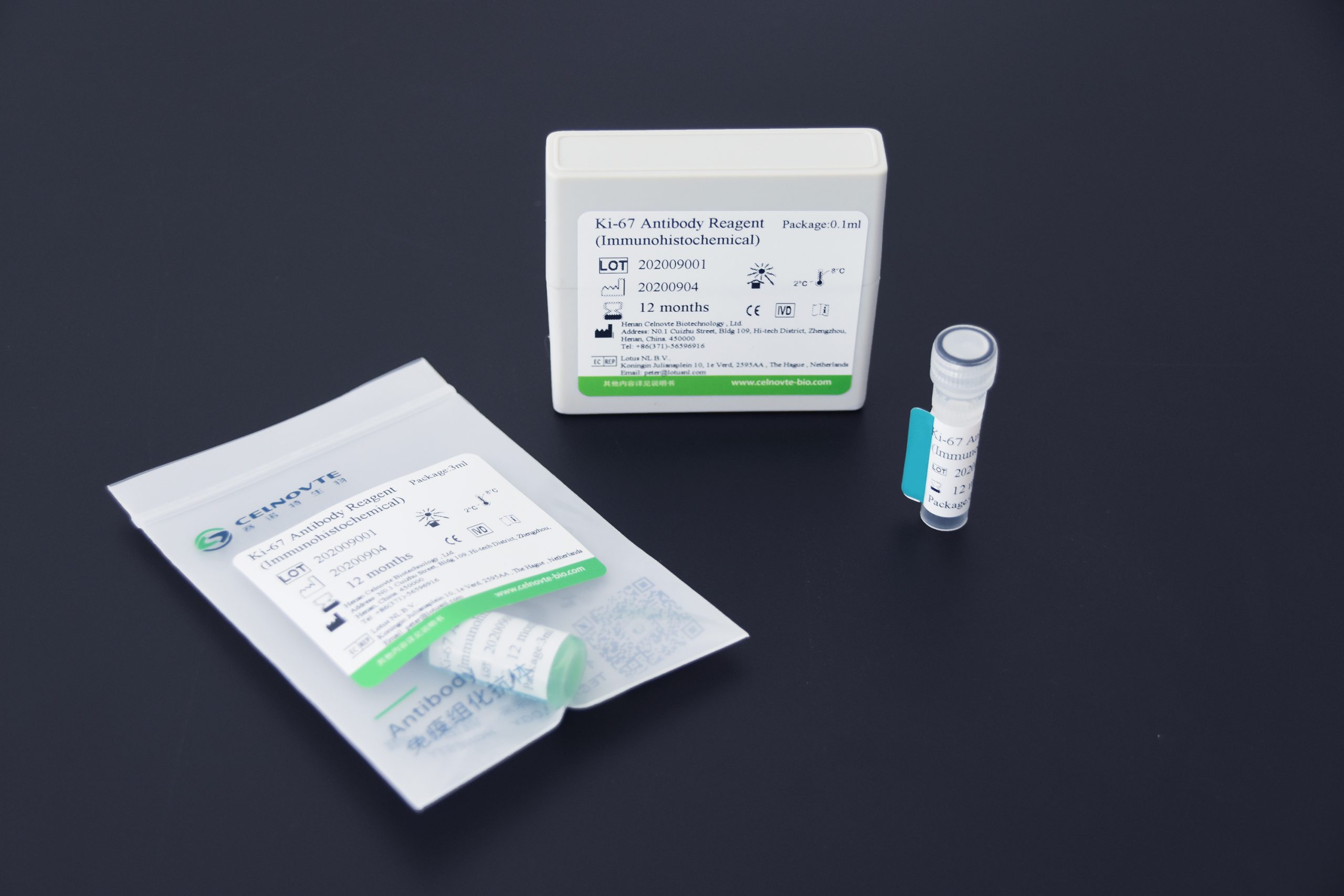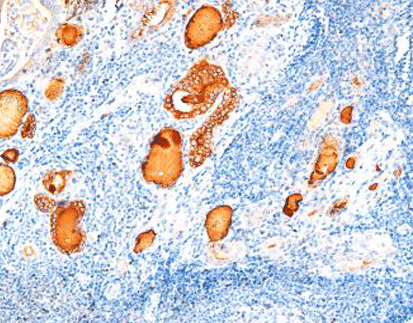 PRODUCT CATEGORY
PRODUCT CATEGORY
CONTACT US
 Phone
Phone
 Email
Email
 Address
Address
ZhengZhou (HQ), Shenzhen (R&D Center), Suzhou (R&D Center), China
Ki-67(C3G4), MMab
Ki67 is a cell proliferation marker that is closely related to the cell cycle. There is expression in G1, S, G2, M period,there is no expression in G0 period. Its proliferation index is closely related to the degree of separation, leaching metastasis and prognosis of many tumors.
Photo Staining Tissue
The Ki67 antigen is a nuclear protein which is expressed in all active parts of the cell cycle (G1, S, G2 and mitosis) but is absent in resting cells (G0). In contrast to many other cell cycle-associated proteins, the Ki67 antigen is consistently absent in quiescent cells and is not detectable during DNA repair processes. Thus, the presence of Ki67 antigen is strictly associated with the cell cycle and confined to the nucleus, suggesting an important role in the maintenance and/or regulation of the cell division cycle.
Disclaimer
Ki67 Antigen is recommended for the detection of specific antigens of interest in normal and neoplastic tissues, as an adjunct to conventional histopathology using non-immunologic histochemical stains.

Specification
|
CODE |
WORKING SOLUTION |
|||
|
CKM-0032 |
SPECIFICATION |
1ml |
3ml |
6ml |
More Info
Clone: C3G4
Source:Mouse
Localization:Nucleus
Pretreatment: Thermal remediation
Applicable tissue :Paraffin section
Reference:
1. Key G, et al. New Ki-67-equivalent murine monoclonal antibodies (MIB 1-3) generated against bacterially expressed parts of the Ki-67 cDNA containing three 62 base pair repetitive elements encoding for the Ki-67 epitope. Lab Invest. 1993 Jun;68 (6):629-36.
2. Jansen RL, et al. MIB-1 labelling index is an independent prognostic marker in primary breast cancer. Br J Cancer. 1998 Aug; 78(4):460-5.
3. Goodson WH 3rd, et al. The functional relationship between in vivo bromodeoxyuridine labeling index and Ki-67 proliferation index in human breast cancer. Breast Cancer Res Treat. 1998 May; 49(2):155-64.
4. Center for Disease Control Manual. Guide: Safety Management, NO. CDC-22, Atlanta, GA. April 30, 1976 “Decontamination of Laboratory Sink Drains to Remove Azide Salts.”
5. Clinical and Laboratory Standards Institute (CLSI). Protection of Laboratory Workers from Occupationally Acquired Infections; Approved Guideline-Fourth Edition CLSI document M29-A4 Wayne, PA 2014.
Related Product











 Chat
Chat

 message
message

 Quote
Quote

 Download
Download



